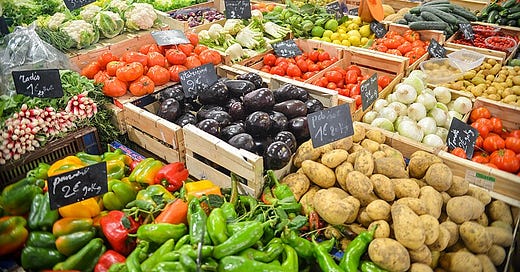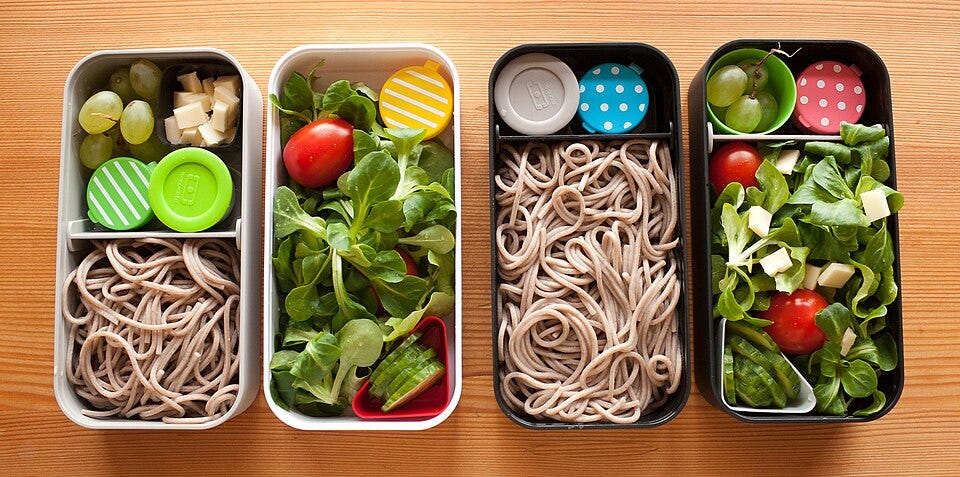What’s Good for Dinner is Good for the Planet 🍽️
How changing what’s on our plates could be one of the biggest steps we take for people and planet.
We often think of climate solutions as heavy infrastructure or high-stakes diplomacy — steel, cement, or carbon markets. But one of the most powerful, practical, and personal actions we can take is far more immediate: it’s what we eat.
Our food system — from farm to fork — is responsible for about one-third of global greenhouse gas emissions. It’s also a major driver of deforestation, biodiversity loss, water use, and ocean degradation. And yet, food is also one of our biggest opportunities for climate action with enormous co-benefits for human health.
Unhealthy diets are now the leading cause of disease globally. Noncommunicable diseases (NCDs) like heart disease, diabetes, and certain cancers are fuelled by ultra-processed foods, excess salt, sugar, and saturated fats — all while many people around the world still lack access to healthy, affordable, nutritious options.
But here's the good news: shifting toward more plant-forward, whole food diets can simultaneously reduce the burden of disease and environmental harm.
One major study in The Lancet found that if the world adopted diets rich in vegetables, fruits, legumes, nuts, and whole grains — and lower in red and processed meat, but not necessarily vegetarian — we could prevent 11 million premature deaths each year by 2045 and slash food-related emissions by up to 70%. That’s a climate intervention with a side of better health.
And it’s not just about emissions. Better diets reduce land use, restore biodiversity, and reduce pollution from agricultural runoff — which is one of the leading causes of ocean dead zones and coral reef decline. So yes, even your lunch can affect the reef.
These co-benefits are already being recognised by forward-thinking governments, hospitals, schools, and even chefs. Cities are adding plant-based meals to public procurement. Schools are growing food literacy. Some hospitals are swapping meat-heavy menus for ones that heal people and the planet.
But this isn’t about restriction. It’s about abundance — more colour on our plates, more flavour, more cultural pride, and more resilience in our food systems. And while personal choices matter, we also need food environments that make the healthy and sustainable choice the easy one.
Over the next few editions of Antidote, we’ll keep exploring how systems — from cities to schools to seas — can unlock health and climate gains together. But this week, we start with something close to home: the plate in front of us.
Because sometimes the biggest change starts with the smallest forkful.
💡 Co-benefit of the Fortnight
School meals, supercharged
School food programmes are one of the best levers we have for driving health and sustainability at scale. Millions of children across the Asia-Pacific region eat meals provided in schools every day. By shifting those meals toward more local and seasonal foods, we can support children’s nutrition, reduce obesity and chronic disease risk, and dramatically cut food-related emissions.
In Japan and South Korea, school lunch systems are already leading the way — showing how food education and sustainable meals can go hand in hand.
✈️ My Field Notes
I’ve recently returned from Fiji and the wider Pacific, where I attended the Oceania Planetary Health Conference. It was an inspiring few days with regional researchers, local leaders, and community champions working at the intersection of climate, environment, and health.
One of the highlights was a rich, open discussion with community leaders and researchers on our emerging strategy for WHO ACE. Their insights were generous, thoughtful, and deeply rooted in lived experience — exactly the kind of grounding we need to shape a strategy that’s relevant, impactful, and inclusive.
It was a timely reminder: real progress starts with listening. And the solutions we build will be stronger when they grow from the wisdom already in the room.
🎧 What I’m Reading / Watching / Listening To
Reading: The Environment in Global Health Governance: An Analysis of Environment-Related Resolutions Adopted by the World Health Assembly – A compelling article in The Lancet Planetary Health examining how global health is (and isn’t) integrating environmental action into its agenda. A sharp read for anyone working on systems change.
Listening: The Food Programme (BBC Radio 4) – The recent episode on communal dining visits projects in Manchester and Copenhagen where shared meals are building community, tackling food insecurity, and reducing isolation. A powerful reminder that how we eat matters just as much as what we eat.
✅ Antidotes – Your Actions
Cook a plant-based meal this week that celebrates local ingredients. Think of it as a small act of climate and health leadership — from your kitchen. 🥗
Ask your school, workplace, or local café: is sustainability part of the menu? A small conversation can lead to bigger shifts. 🌱






Thankyou. I really enjoy your insights and your expertise.
Great article, and I love how you’re focusing on small tangible food changes (economical and sustainable ones too!) we can achieve to create a bigger result.